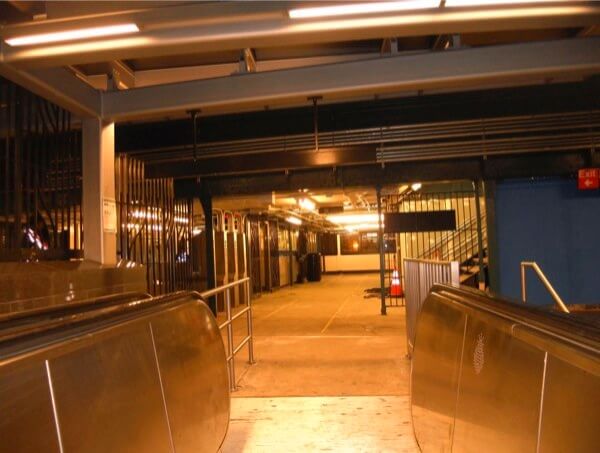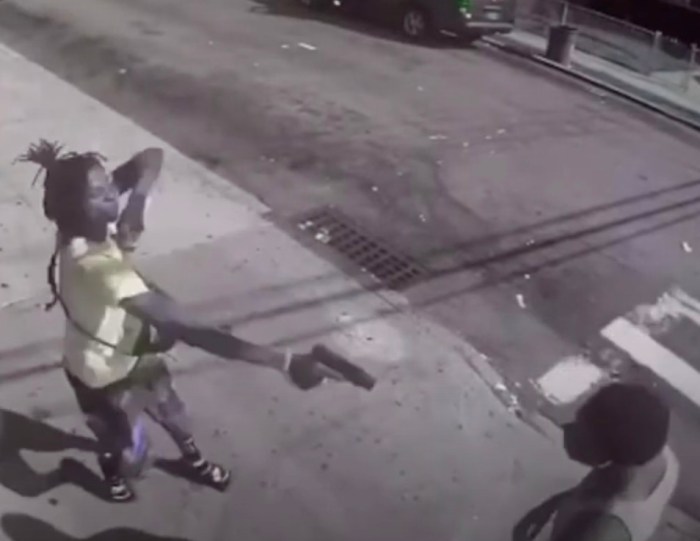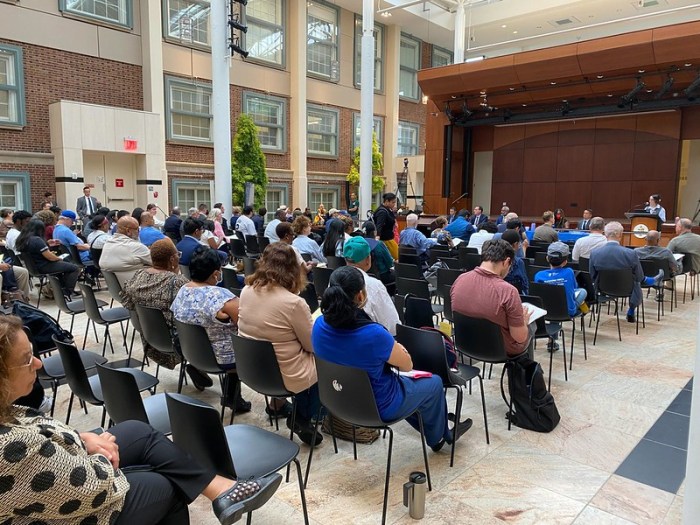By Gina Martinez
Councilman Rory Lancman’s (D-Hillcrest) fare evasion bill passed unanimously in the City Council this week.
The legislation will now require the NYPD to report the number of arrests and summonses issued for subway fare evasion on a quarterly basis and break down the data into three categories: the subway station where the enforcement action took place, transit bureau district, race and sex, and age group of the individual arrested or issued a TAB summons.
Lancman, who also serves as the chairman of the Committee on Courts & Legal Services, sponsored the bill in response to data from the state’s Division of Criminal Justice Services that showed that in the first six months of 2017, the NYPD made more than 30,000 stops for jumping a turnstile. According to the data, of those who were stopped, three-quarters were issued a civil summons for violating the MTA rules against fare evasion, but during the same period 8,625 individuals were arrested for “theft of services,” a misdemeanor offense under state penal law. Nearly 90 percent of those arrested for theft of services in 2017 were either black or Latino and Lancman said the data confirmed that the city’s prosecution of fare evasion as a crime disproportionately affects immigrants and people of color.
This new legislation is intended to fill in the gaps in the current system for reporting fare evasion arrest and summons data. Earlier this year, the NYPD refused to release data on where fare evasion arrests took place and the race of the individuals who were arrested, despite repeated requests made by MTA board member David Jones.
Lancman said his measure will provide the public with the data needed to understand the extent to which communities of color are over-policed when it comes to fare evasion.
“What we know is that the mayor’s insistence on using arrests and criminal prosecution for fare evasion, all while a civil alternative is readily available, has disproportionately impacted brown and black New Yorkers,” he said. “However, what we do not know is how the NYPD is focusing its fare evasion enforcement and which precincts are spending most time and resources chasing after fare beaters. Sound public policy is only possible with complete data”
In October, the Community Service Society released a report, “The Crime of Being Short $2.75: Policing Communities of Color at the Turnstile,” which detailed how the city’s prosecution of fare evasion as a crime disproportionately affected low-income communities of color in Brooklyn in 2016. A person arrested for jumping a turnstile can face serious consequences, including a criminal record, time in Rikers Island, or even deportation for legal immigrants with a green card or visa.
Jones, who also serves as CEO and president of the Community Service Society, said this legislation will finally provide the public with regular, accessible information on just who is getting arrested or given summonses.
“Reporting will reveal the full dimensions of what is happening citywide, the first step towards needed change,” he said. “But, fundamentally, we should not be arresting people for the crime of being too poor to afford a MetroCard. We should be ensuring transit affordability through half-price fares for New Yorkers struggling to get to work, get to essential appointments, and get home to their kids.”
Lancman introduced the measure in July and the Public Safety Committee formally considered the bill at a hearing in October.
Reach Gina Martinez by e-mail at gmart


































